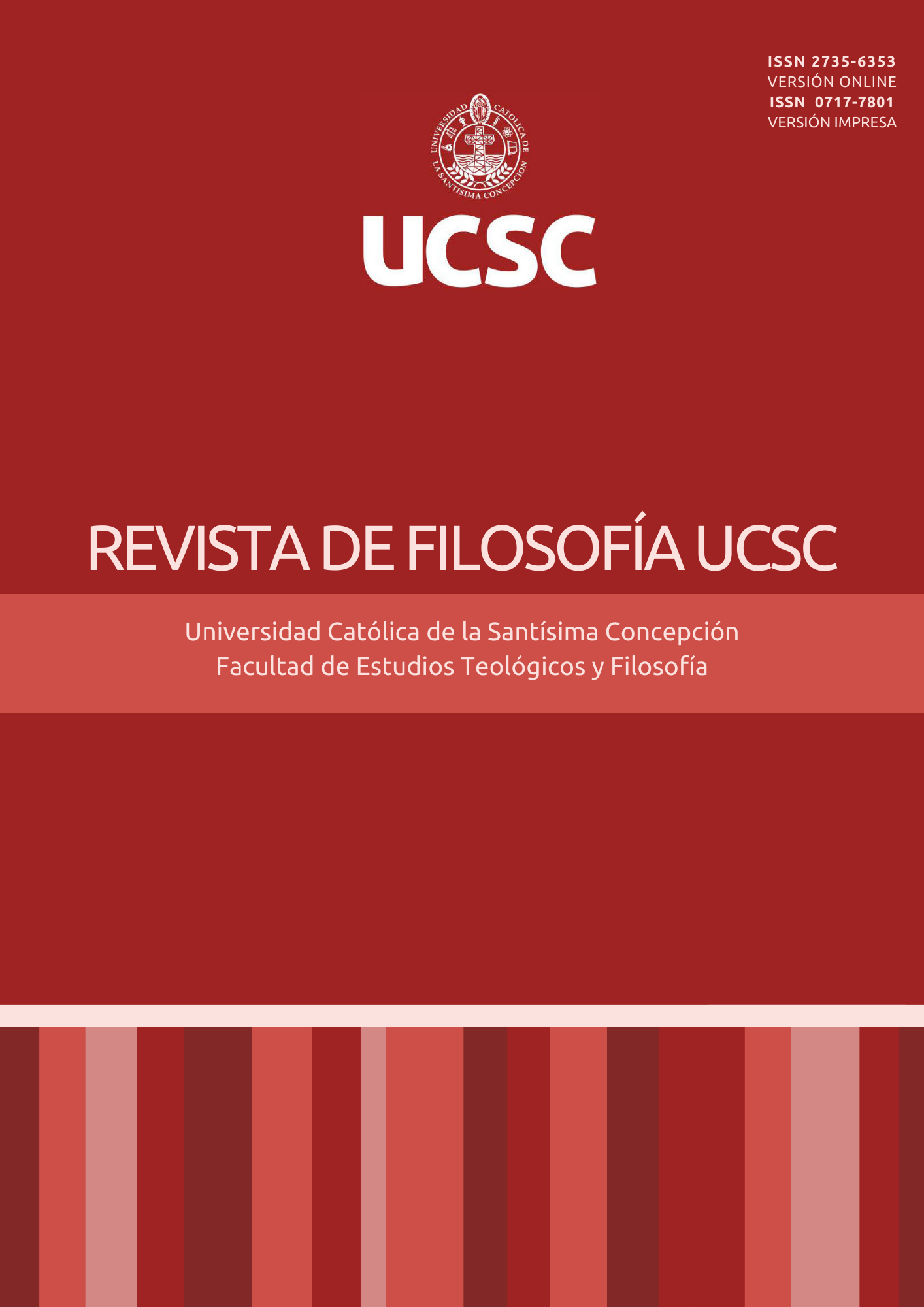La pregunta por la coherencia de la noción de amistad en el sistema epicúreo: una propuesta de disolución del problema
Contenido principal del artículo
Resumen
Un supuesto común dentro del debate interpretativo en torno a la descripción epicúrea de la amistad es que el hedonismo que promulgaba esta escuela implicaba al egoísmo como su consecuencia conceptual y doctrinal necesaria. Este trabajo plantea que la amistad epicúrea, lejos de ser un concepto que contradice su propio sistema, ilumina zonas del hedonismo que habían sido oscurecidas por este supuesto. Por esto, el objetivo de esta investigación es disolver –y no resolver– el problema de la coherencia entre el concepto epicúreo de amistad y el hedonismo supuestamente egoísta. La primera parte de este trabajo está dedicada a describir por lo menos una parte de la discusión académica en torno al concepto epicúreo de amistad. Así, la segunda parte procura cuestionar, a partir de textos epicúreos que versan sobre la amistad y la justicia, la suposición de que Epicuro y los epicúreos basaban su sistema en el egoísmo. Finalmente, en la conclusión, se sintetizan los resultados del cuestionamiento y se plantean algunas consecuencias que la disolución del mentado problema podría tener en futuras investigaciones sobre la dimensión social del placer en Epicuro.
Detalles del artículo
Sección

Esta obra está bajo una licencia internacional Creative Commons Atribución-NoComercial 4.0.
La Revista de Filosofía UCSC es de acceso abierto y no cobra por publicar en ella. Además, regula su política de Derechos de Autor y de acceso a sus archivos de acuerdo con la Licencia Pública Attribution-NonCommercial 4.0 International (CC BY-NC 4.0), por tanto, se permite compartir (reproducir y distribuir el material en cualquier medio o formato) y adaptar (modificar, transformar y crear a partir del material) siempre y cuando se de crédito adecuadamente, se incluya la cita con los datos correspondientes. Además, no está permitido utilizar el material con fines lucrativos.
Cómo citar
Referencias
Aoiz, J. & Boeri, M. (2023). Theory and Practice in Epicurean Political Philosophy. Bloomsbury.
Aoiz, J. (2020). Amistad y epicureísmo. Stylos, 29, 121-137.
Brown, E. (2002). Epicurus on the Value of Friendship (Sententia Vaticana 23). Classical Philology, 97 (1), 68-80.
Cicerón. (1987). Del supremo bien y del supremo mal (Víctor José Herrero Llorente, Trad.). Gredos.
Diógenes Laercio. (2010). Vidas y opiniones de los filósofos ilustres (Luis-Andrés Bredlow, Trad.). Lucina.
Epicuro. (1973). “Gnomologium Vaticanum Epicureum”, en Graziano Arrighetti (Ed. y Trad.), Opere (pp. 139-158). Giulio Einaudi.
Epicuro. (1994a). “Exhortaciones (Gnomonologio Vaticano)”, en Monserrat Jufresa (Ed. y Trad.), Obras (77-84). Altaya.
Epicuro. (1994b). “Report of Epicurus’ Ethical Views: Diogenes Laertius 10.117–121”, en Brad Inwood y L. P. Gerson (Eds. y Trads.), The Epicurus Reader (pp. 42-44). Hackett.
Epicuro. (1994c). “The Vatican Collection of Epicurean Sayings”, en Brad Inwood y L. P. Gerson (Eds. y Trads.), The Epicurus Reader (pp. 36-40). Hackett.
Lévy, C. (2001). “Cicéron et l’épicurisme: la problématique de l’éloge paradoxal”, en Clara Auvray-Assayas y Daniel Delattre (Eds.), Cicéron et Philodème: la polémique en philosophie. Rue d'Ulm.
Mitsis, P. (1988). Friendship and Altruism. En Phillip Mitsis (Ed.), Epicurus' Ethical Theory (pp. 98-128). Cornell University.
O’Keefe, T. (2001). “Is Epicurean Friendship Altruistic?”, Apeiron, 34 (4), 269-305.
Plutarco. (2004). Obras morales y de costumbres (Moralia) XII (Juan Francisco Martos Montiel, Trad.). Gredos.
Porfirio. (1984). Sobre la abstinencia (Miguel Periago, Trad.). Gredos.




